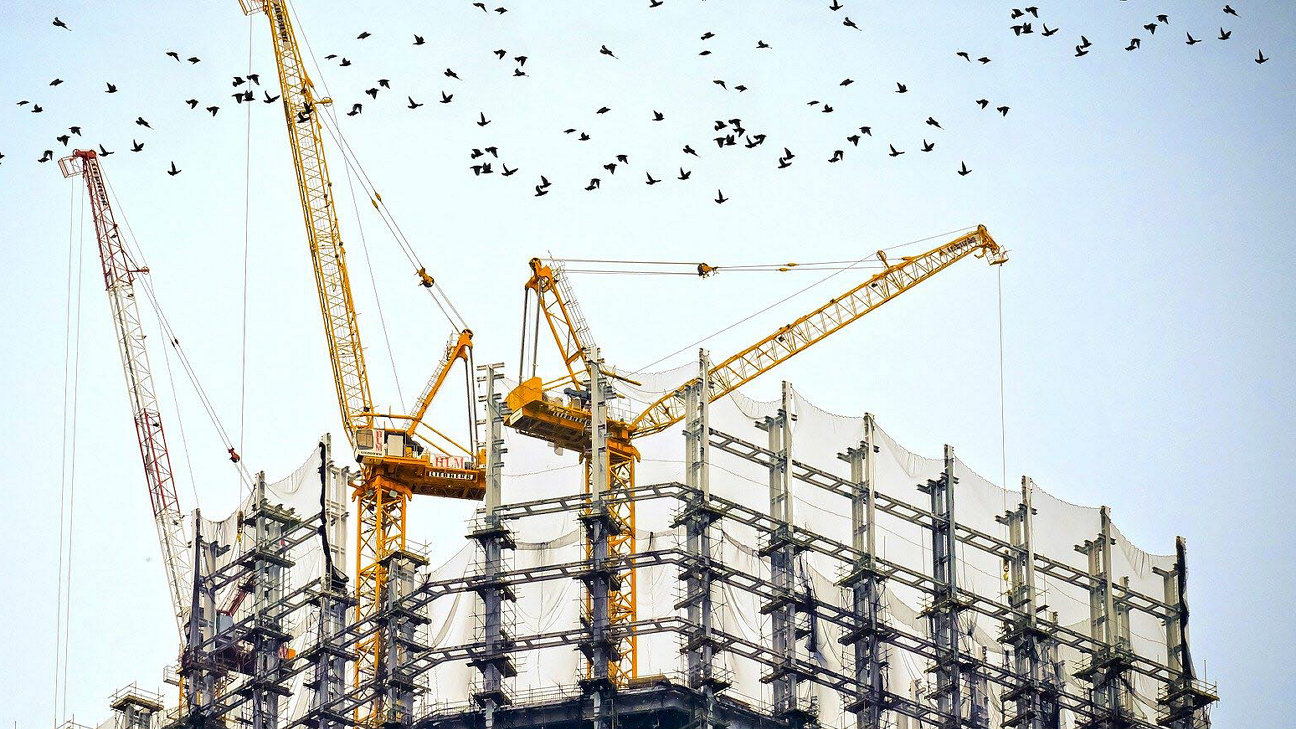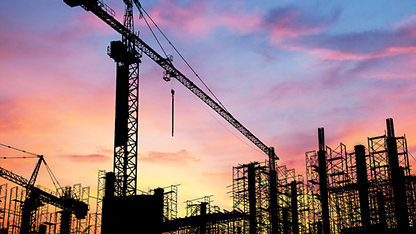Construction projects across the world have been significantly affected by COVID-19. As management of the pandemic continues to evolve, many project leaders are no longer focused on potentially closing sites, but rather the measures required to allow sites to remain open and continue work.
The severity of the pandemic and directions from governments mean that the key to maintaining site operation is to ensure it is done safely.
In the recent RICS webinar, COVID-19: impact on the construction industry, professionals including construction business owners and managers, legal representatives and RICS experts discussed the logistics of running a safe site in the context of the pandemic. Practical solutions suggested included personal protective equipment, cabins distanced further apart than usual, staggered start times, extra washing points and potentially the addition of a social distancing co-ordinator role.
What has been encouraging in the face of current challenges is the way the industry has responded and the resilience it has shown, with RICS profiling some of these stories. Not only has the expertise of the industry been vital to the fight against the virus, with many companies and professionals contributing to the construction of medical facilities for example, but behaviours and ways of working have been adjusted to allow for the continuation of other projects. Some firms have been sourcing materials and labour more locally, offering the benefit of a more sustainable solution both environmentally and economically.
Three key tips for construction professionals
1. Consider practical solutions – in anticipation of returning to site, think about the logistics of running a safe site which complies with new rules.
2. Make use of technology – use this time as a catalyst for improving processes through digital solutions.
3. Communicate and collaborate – continue to strengthen relationships and use them as the base for decision making.
Reduced project efficiency a key challenge
Despite the impetus to restart or continue work, it must be acknowledged that doing so safely will mean reduced efficiency and productivity. Those on the webinar estimated that sites currently in operation are working at 25 per cent of normal efficiency levels and professionals are currently conducting conversations about the best way to obtain more accurate productivity measures.
Although nations are at different stages in the management of the virus, many commentators agree that the impacts of COVID-19 on the economy and working practices will be long-lasting. The reduced efficiency on construction sites therefore looks set to continue for the foreseeable future, understandably causing industry uncertainty.
Other challenges facing construction projects include problems with cash flow, contractual implications resulting from delays, supply chain sustainability, accessibility to materials and resources, and labour shortages due to travel restrictions.
Technology allows for process improvement
For many years discussion has been growing about the sector’s slow adoption of digital processes and solutions. But the impact of the virus has meant the take up of technology has been accelerated. Many firms have had no choice but to conduct virtual inspections or run project meetings online. Reliance on BIM has also increased, and as a result common data formats are being used. The wider implementation of technology has meant that some processes have become more agile and quicker.
Solutions found through increased collaboration
Key to all of this is collaboration and the strengthening of relationships. As an example, many contractual issues – whether they relate to force majeure, extensions of time or loss and expense – have been dealt with through communication and collaboration.
Many of the challenges facing construction are not new, yet the unique situation in which the industry, and indeed the world finds itself, has made these issues impossible to ignore.
Alan Muse, Global Built Environment Standards Director at RICS, said: ‘The crisis is providing a catalyst for change in the industry in terms of the greater adoption of technology, consideration of sustainability and social value impacts, and greater collaboration.’
‘While most construction has been adversely affected in the short and medium term by closing sites, social distancing, material shortages and investment uncertainty, it will provide an important stimulus to the world economy if governments enable projects to proceed after the virus abates.’
It is up to the industry to ensure that the spirit and solutions resulting from the pandemic are sustained beyond it in order to both secure its future and contribute to the economy.
RICS supports the industry with dispute resolution service
We have taken the RICS Dispute Resolution Service operations online to ensure people can continue to benefit from it remotely, with staff offering normal levels of service to all users and customers.
In response to the pandemic, we have also introduced a low value construction adjudication service, specifically for the UK, to provide a cost-effective service for smaller firms and contractors. The service, which operates in accordance with the Construction Industry Council Low Value Disputes Model Adjudication Procedure, is aimed at disputes where the amounts claimed are for £50,000 or less and the issues in dispute are relatively uncomplicated.
A summary adjudication service for claims below £20,000 has also been implemented, providing a summary decision within 14 days of referral. We are grateful for the efforts of experienced members of the RICS President’s Panel of Adjudicators who have made this service possible by agreeing a fee fixed at £1000 + VAT so that it remains affordable to support SMEs facing challenges to recover payment in the current circumstances.














